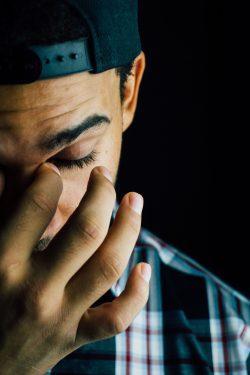It can be hard to believe that a casual pill-popping habit can turn into the ugliness that is opiate addiction, but it happens all the time. Prescription opiate drugs work wonders at relieving pain symptoms. They also work wonders at paving the way for addiction to develop.
Whether opiates entered your life though an unfortunate injury or accident that warranted a pain medication, or you use them to “take the edge off” of daily living, the potential for opiate addiction grows with each passing day once drug abuse enters the picture. If you’re on the brink of a full-blown opiate addiction or know someone who is, understanding how opiates hijack your health and mental well-being can help you take steps towards taking back control of your life.
Call our helpline at 800-291-1732 (Who Answers?) for information on opiate addiction treatment options.
The All-Time Pill-Popping Myth
The common perception that doctor-prescribed medications have built-in safety features can be misleading, especially in the case of opiate-based drugs. Granted, prescription opiates, such as codeine and Dilauid are formulated to produce controlled effects; however, they also produce certain unintended side effects, such as feelings of calm and contentment, according to Northwestern University.
These unintended side effects coupled with so-called “safety features” can easily place unsuspecting users at risk of opiate addiction.
Opiate Effects Take on a Life of Their Own

Pill-popping recreationally can quickly develop into an addiction.
As a general rule, prescription opiates should only be used on a short-term basis, not to exceed three consecutive months. This condition offers the only real precaution for avoiding the opiate abuse-addiction cycle.
Once a person exceeds this three month limit, the drug’s unintended side effects take on a life of their own. In effect, long-term use of these drugs alters the brain’s chemical makeup in dangerous ways.
Once frequent withdrawal episodes and emotional distress become the daily norm, an opiate addiction is at work.
When Pills Are No Longer Enough
Unbeknownst to most users, the brain readily adapts to the effects of opiates and actually adjusts its own chemical activities to accommodate opiate effects. According to the National Institute on Drug Abuse, these interactions mean the brain’s tolerance for opiates is increasing. When this happens, larger drug doses must be ingested to in order to experience the desired “high” effect.
Tolerance levels will continue to increase for as long as a person keeps taking the drug. After a certain point, a person will have to transition to stronger opiate drugs, such as heroin or heroin-fentanyl combinations. Not only has a full-blown addiction taken hold, but the risk of overdose, and even death has increased considerably.
Treatment Considerations
If you’ve reached the point where getting and using prescription pain pills has become the bright spot in your daily life, there’s a very real need for some type of opiate addiction treatment help. Even in cases where a person can still carry out daily life responsibilities, such as work and maintaining a home, the need for treatment is there.
If you or someone you know are dealing with an opiate abuse problem and have reached a point where you’re considering drug treatment, please don’t hesitate to call our toll-free helpline at 800-291-1732 (Who Answers?) to speak with one of our addiction counselors.
